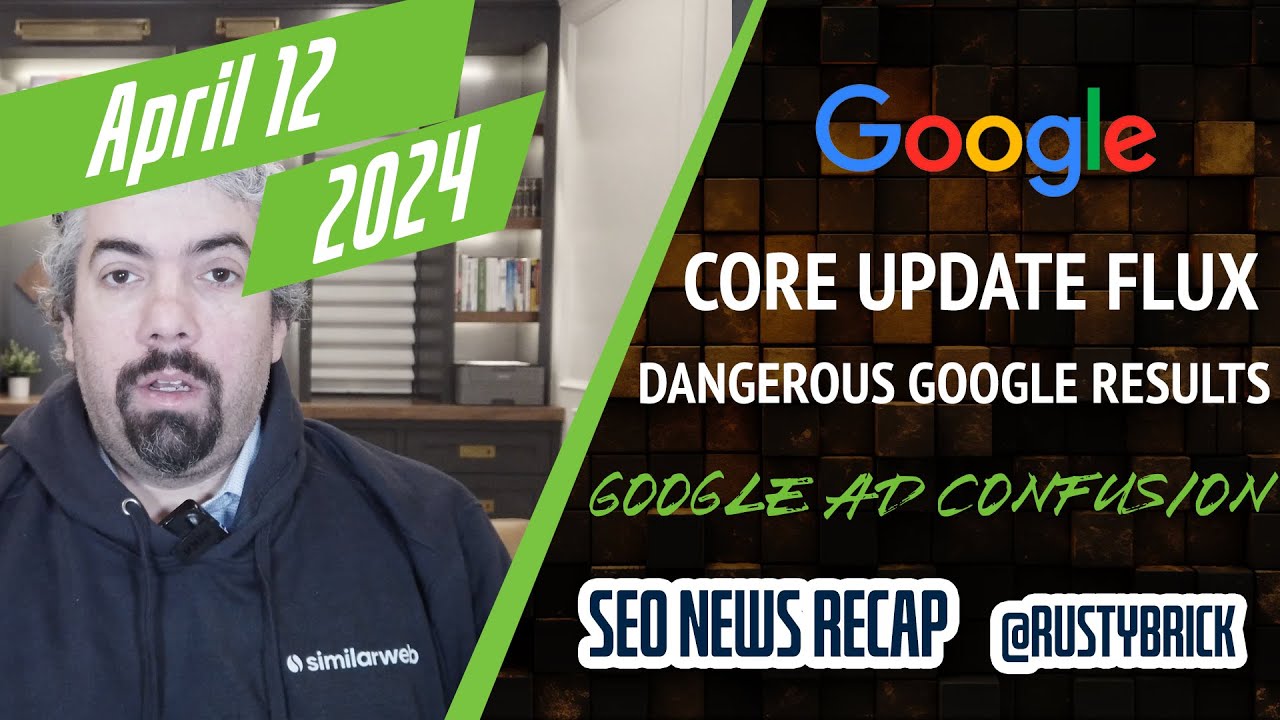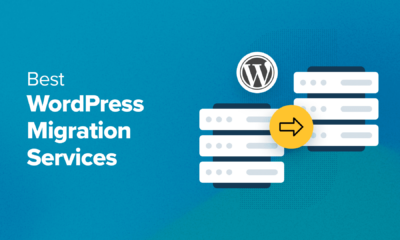SEARCHENGINES
Google Ads Performance Max Gains Performance Planner, Scheduled Asset Groups & More

Google Ads has added several updates to Performance Max campaigns. The updates include support in performance planner, scheduled asset groups with automated rules, first-party data segmentation, and up to 15 headlines from only 5 headlines.
The new Performance Planner tool for Performance Max allows you to create plans and understand how you can invest your budgets to maximize ROI. Performance Max in Performance Planner is rolling out now and will become available to all advertisers in the coming weeks, Google said. Also, this allows you to create plans to see forecasts of how your campaign may perform & simulate the impact of changes to factors like budget & targets. The forecasts also take seasonality (e.g. holiday lifts) into account.
Here is a screenshot:
Google said you can forecast how your campaign may perform in the future and simulate what could happen when you adjust elements like your campaign budget and ROAS or CPA targets. This can assess how changes to campaigns could affect key metrics like conversion value. Performance Planner’s forecasts are also adjusted for seasonal events.
You can now schedule asset groups with automated rules. That includes dayparting and pre-scheduling capabilities. Assets can also go through review while paused so they’re ready to go when your sale or event starts, Google said.
Asset group scheduling is another great tool for holiday campaign planning that rolled out earlier this month. Now you can add automated rules to your Performance Max asset groups. These rules allow you to schedule asset groups so that they are paused and enabled, as needed. Use these rules to run ads at specific times of day, or to create and schedule asset groups ahead of time. This is especially helpful to make sure your creative assets are approved in advance, which you can do while an asset group is paused. For example, you could schedule a new set of holiday-themed assets ahead of a special sitewide sale or promotion. Or maybe you’re hosting an in-store special event and want to schedule some assets to help promote it.
You can soon see your first-party data segments added as audience signals in audience insights on the Insights page. To help you gain more insights into your existing customers and website visitors, add your data segments as audience signals* in your Performance Max campaigns. This also speeds up automation’s ability to find you more of these valuable, converting customers. In the coming weeks, your data segments will be added to audience insights in the Insights page. Use these insights to understand the value of your first-party data and see which of your customer lists may be converting best.
Also, now you can add as many as 15 headlines, which is up from 5 headlines, this provides more combination testing. Google said, to further enhance your asset strategy, towards the end of the year, the number of text headlines you can upload to your Performance Max asset groups will be increasing from 5 to 15! By adding more headlines, you can take advantage of machine learning’s ability to create and test even more combinations to find the best-performing variations. This is coming later this year.
Finally, you can use explanations to quickly identify what is driving performance fluctuations, diagnose issues, and view recommendations. You can see this easily in the explanations panels without having to spend hours manually cross-referencing reports and spreadsheets. Explanations are available for all Performance Max campaigns, but there are some new explanations specifically in Performance Max campaigns for online sales with a product feed. For example, you might see explanations that offer analysis on your product status and your top-moving products, listing groups, and product types. A retailer could use these to understand which products saw the biggest changes in performance during the holiday shopping season.
Forum discussion at Twitter.
Source: www.seroundtable.com
SEARCHENGINES
Google Core Update Volatility, Helpful Content Update Gone, Dangerous Google Search Results & Google Ads Confusion

For the original iTunes version, click here.
This week, we covered that the Google March 2024 core update is still rolling out 38 days later, but we saw more volatility this week. Just a reminder that the Google helpful content update no longer exists. Gary Illyes from Google again says core update and indexing are independent. Google responded to complaints about dangerous and harmful search results. Google says ranking well in other verticals like shopping, images and others, does not negatively impact your web rankings. Google updated its structured data carousels beta documentation. Google says don’t disallow your internal footer links. Google says there are minimal differences between using a 404 and 410 status code. Google is testing short videos in the search bar. Google is not removing the site command. Bing is testing removing the cache link and the estimated number of search results. Google SGE is testing AI overview tabs. Bing is testing sources across the web AI. Google image search now has pixel-level object segmentation. Google Ad strength is not used in the auction, Google says. Google is testing sticky sponsored labels. Google Ads is also testing people also considered labels in the search ads. Google Ads tests “get phone number” buttons instead of the “call” button. Google released its Merchant Center product data specifications for 2024. Google Maps has a new flow for suggest an edit. That was the search news this week at the Search Engine Roundtable.
Sponsored by Similarweb, the all-in-one- strategic SEO software. Get clarity of the SEO landscape through competitor analysis, keyword research, rank tracking, SERP insights and more. With industry-leading traffic and keyword data, based on real user journeys, Similarweb gives SEO professionals the whole picture so they can strategize smartly and drive sustainable business growth.
Make sure to subscribe to our video feed or subscribe directly on iTunes, Apple Podcasts, Spotify, Google Podcasts or your favorite podcast player to be notified of these updates and download the video in the background. Here is the YouTube version of the feed:
Search Topics of Discussion:
Please do subscribe on YouTube or subscribe via iTunes or on your favorite RSS reader. Don’t forget to comment below with the right answer and good luck!
SEARCHENGINES
Daily Search Forum Recap: April 12, 2024
Here is a recap of what happened in the search forums today, through the eyes of the Search Engine Roundtable and other search forums on the web.
Google says indexing systems and algorithm update systems are independent and don’t impact each other. Google clarified its structured data carousel beta to add feature availability and where the markup goes. Google says ranking well in product results, images, etc does not impact how well you rank in web search. Google is testing mentioned in section within the knowledge panels. Google Maps updated its suggest an edit workflow. We have a recap of the Google Search Central Live event in Romania from Mihai. And I posted the weekly SEO video recap.
Search Engine Roundtable Stories:
-
Google: Indexing & Algorithm Updates Are Independent
Google once again said that its indexing systems are completely independent of its ranking updates, like the core update. Gary Illyes from Google said indexing, canonicalization, and those types of “systems are independent” of core updates. -
Google Structured Data Carousels Beta Docs Clarifies Feature Availability & Markup Location
Google has made some changes to its new Structured data carousels (beta) documentation to list the feature availability of this carousel and also to clarify where to place the markup. Google wrote the “markup must be on the summary page, and you don’t need to add markup to the detail pages in order to be eligible for this feature.” -
Google: Ranking In Shopping, Images & Other Verticals Doesn’t Hurt Your Web Rankings
John Mueller from Google said that ranking well in the Google Shopping or Google Image vertical boxes does not impact your ranking in the core web results. He said, “I can’t imagine that they’d be connected” when asked about how ranking well in the Merchant Center results can impact the web results. -
Google Knowledge Panels – Mentioned People
Google is testing a “mentioned” button that shows other people mentioned in the knowledge panels in the Google Search results. We saw variations of “mentioned by” in Google Discover and Explore but now we are seeing something similar in knowledge panels. -
Google Maps Suggest An Edit Flow Updated
Google has updated the Suggest an edit feature within Google Maps business listings. Google said the new flow is “easier” and should help make updates to the Google Maps data. -
Recap of Google’s Search Central Live Romania 2024
Last week marked the first-ever official Google SEO-focused event in Romania ‘” Search Central Live Romania ‘” on a sunny 4th of April in Bucharest. As a Search Central Product Expert who lives in Bucharest, the event made for an exciting occasion for people from my local SEO community to listen to and interact directly with Googlers… -
Google Bowling Alley Is Still There
Google has had its very own bowling alley at the GooglePlex, the main Google headquarters in Mountain View, California for well over a decade now and guess what, it is still there. Here is a recent photo I found on Instagram of some Googlers bowling at that alley. -
Search News Buzz Video Recap: Google Core Update Volatility, Helpful Content Update Gone, Dangerous Google Search Results & Google Ads Confusion
This week, we covered that the Google March 2024 core update is still rolling out 38 days later, but we saw more volatility this week. Just a reminder that the Google helpful content update no longer exists. Gary Illyes from…
Other Great Search Threads:
Search Engine Land Stories:
Other Great Search Stories:
Analytics
Industry & Business
Links & Content Marketing
Local & Maps
Mobile & Voice
SEO
PPC
Search Features
Feedback:
Have feedback on this daily recap; let me know on Twitter @rustybrick or @seroundtable, on Threads, Mastodon and Bluesky and you can follow us on Facebook and on Google News and make sure to subscribe to the YouTube channel, Apple Podcasts, Spotify, Google Podcasts or just contact us the old fashion way.
SEARCHENGINES
Google Search Results Can Be Harmful & Dangerous In Some Cases

Over the past few weeks, Google’s Search Liaison, Danny Sullivan, has been replying to complaints about some examples of search results being not just low-quality but also potentially harmful and dangerous. The sad part to me is that a couple of years ago, this was not the case with the Google search results (for the most part).
When I interviewed Hyung-Jin Kim, the Vice President of Google Search, at SMX a couple of years back, he told a touching story about this topic. He explained that a family member of his was going through a medical issue and that he went to Google Search to find answers. As a VP of Google Search, his goal was to make sure that the Google Search results never led anyone to information that can end up hurting that searcher. That is where EEAT came from, partially, to ensure the search results did no harm and were not dangerous.
Now, we have way too many complaints about the Google search results offering up dangerous and harmful results. Google has responded to some of those saying they are taking in the feedback and will do better in the future. A lot of it stems from Google showing more Reddit results because they say searchers seek it out. But as Steve Jobs use to say, “Some people say, “Give the customers what they want.” But that’s not my approach. Our job is to figure out what they’re going to want before they do.”
Danny Sullivan wrote, “Appreciate the feedback. Aware of these concerns. Have passed them on. Have been talking with the team about them.”
Here are some examples, some we shared before, of Google responding to some of these examples:
That unit appears automatically if the systems think it might be relevant and useful. I’s not like someone said “put it first for that particular query” — which I know you understand, but others reading this might not. That said, I can appreciate the concern and issue, and I’ve…
— Google SearchLiaison (@searchliaison) April 3, 2024
I did understand that point and concern. I didn’t say “because users all seem to like something, we show it regardless of relevancy.” But let me take a swing at some of those points again:
1) We want to ensure that *any* content we show in results — including forum content –…
— Google SearchLiaison (@searchliaison) April 3, 2024
I sort of thought this:
“As with any change to our ranking systems, nothing is perfect. There will be issues that come up, as I talked about in the past: https://t.co/urIBxL3gcQ… So our goal will be to keep improving things forward, and constructive feedback like this is…
— Google SearchLiaison (@searchliaison) April 4, 2024
That’s not what I said. I said we show forum content *at times* because users can find forum content to be useful, which is a fairly reasonable thing. People do find forum content useful.
That doesn’t mean it’s always useful, which is also why we don’t always show forum content.…
— Google SearchLiaison (@searchliaison) April 4, 2024
Great to know that Reddit, Quora, and a 3-year-old Avvo thread are “better” results for this legal query than the American Bar Association 🤦♀️
Makes it even better that the top answer on one of the Reddit threads is from someone with an 18+ profile with some answers so gross I… pic.twitter.com/5x4DR5T4CZ
— Joy Hawkins (@JoyanneHawkins) April 8, 2024
Appreciate the feedback. Aware of these concerns. Have passed them on. Have been talking with the team about them. Here’s some of what I’ve shared on this:https://t.co/9DpdWyDp4Ahttps://t.co/SRGGWu5dXxhttps://t.co/FUJen9R6Oahttps://t.co/Fsd4XP8ti5
— Google SearchLiaison (@searchliaison) April 9, 2024
Yeah, why is this affecting *so* many university sites? Any hackers/spammers care to chime in here? 😅 https://t.co/4UKmoFM5qz
— Lily Ray 😏 (@lilyraynyc) April 10, 2024
Example of unhelpful results pic.twitter.com/uiycU8xIPh
— AI Digital Marketing (@AiDigitalMktg) April 8, 2024
I really don’t think the forum results are what anyone wants.
The 1st result I get is this nonsense (see image)
Aside from the fact that most ppl will see this and ask “why the hell is the 1st thing I see – this is crap” it’s dangerous.
Kids with eating disorders should not… pic.twitter.com/nn6Mmf4uVa
— Mordy Oberstein *Mistakes Happen* (@MordyOberstein) April 7, 2024
It is actually something we spoke about a bit on our daily recap video (a new series) yesterday.
Maybe Google needs to show this warning more often these days when Reddit shows up as Higman points out:
While Google continues to say search quality is better and unhelpful content will be reduced by 40% or so, while also promising quality improvements time and time again – most SEOs don’t expect much change.
I analysed the top-ranking sites for 1,000 health symptom keywords — many covering serious concerns.
The most prominent domain Google ranks is Mayoclinic.
The second most prominent is Quora, where it’s easy to find spammed, copied or AI-generated medical advice.
For instance,… pic.twitter.com/SbFaG6gEud
— Glen Allsopp 👾 (@ViperChill) April 11, 2024
I didn’t embed a ton of examples but I do expect Google to work on this issue and for this to be a thing of the past at some point… I hope…
Forum discussion at X.
-

 PPC6 days ago
PPC6 days agoHow 6 SEO Experts Are Navigating Google Update Chaos
-

 SEARCHENGINES6 days ago
SEARCHENGINES6 days agoBing Search Testing Removing Cache Link From Search Results
-

 MARKETING6 days ago
MARKETING6 days ago60 Remote Work Stats to Know in 2024
-

 WORDPRESS5 days ago
WORDPRESS5 days ago10 WordPress Influencers to Follow in 2024 – WordPress.com News
-

 WORDPRESS6 days ago
WORDPRESS6 days ago8 Best WordPress Migration Services (Compared)
-

 MARKETING5 days ago
MARKETING5 days agoFeeling Stuck: What to Do When You Don’t Know What to Do
-

 SEO7 days ago
SEO7 days agoGoogle Explains How It Chooses Canonical Webpages
-

 SEARCHENGINES4 days ago
SEARCHENGINES4 days agoMore Google March 2024 Core Update Ranking Volatility

















You must be logged in to post a comment Login